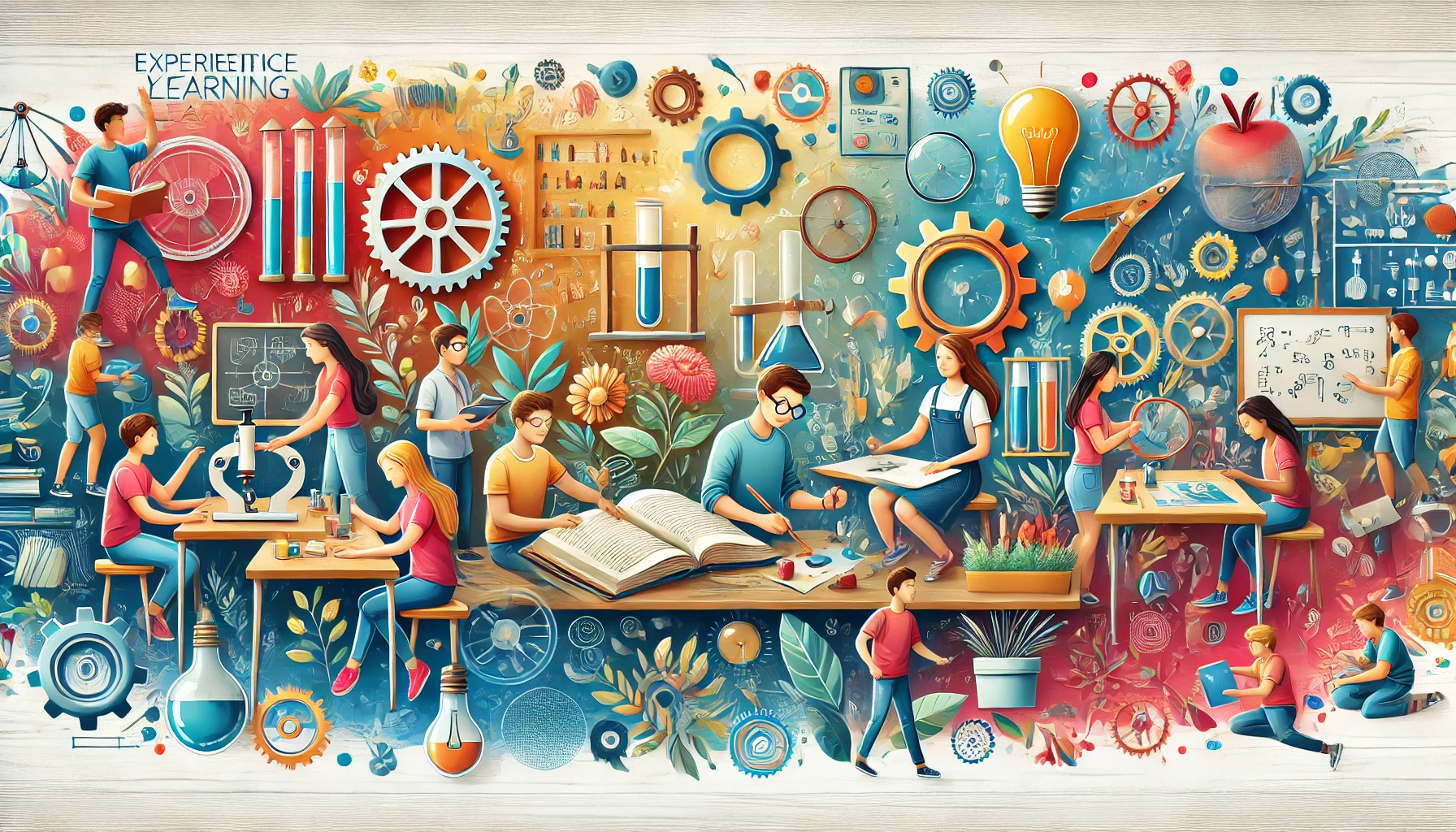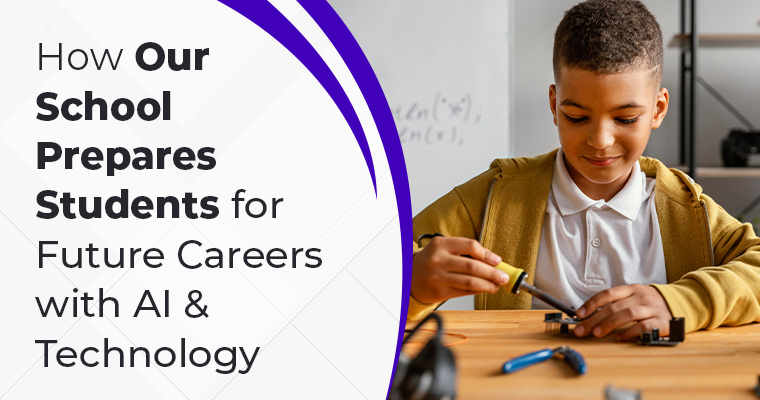
In today’s rapidly changing world, traditional teaching methods often fall short in preparing students for real-life challenges. This is where experiential learning comes into play, offering a hands-on approach that enhances understanding and retention. At Gitanjali International School, we recognize the significance of experiential learning in nurturing well-rounded individuals ready to face the future. In this blog, we will explore the importance of experiential learning in schools and how it benefits students’ development, preparing them for success in both academics and life.
What is Experiential Learning?
Experiential learning is an educational philosophy that emphasizes learning through experience. It involves students actively engaging in hands-on activities that allow them to apply knowledge in practical situations. This method encourages critical thinking, problem-solving, and collaboration, making learning more relevant and meaningful. Many of the best schools in Gurgaon have adopted this approach to enhance their curriculum.
Benefits of Experiential Learning
- Enhances Engagement and Motivation
Students often find traditional classroom lectures disengaging. Experiential learning transforms the learning process into an interactive experience, capturing students’ attention and motivating them to participate. When students are actively involved in their learning, they are more likely to retain information and develop a genuine interest in the subject matter.
- Develops Critical Thinking Skills
Experiential learning challenges students to think critically and make decisions in real-world scenarios. By tackling complex problems and collaborating with peers, students learn to analyze situations from multiple perspectives. This skill is crucial not only in academics but also in everyday life, setting the foundation for effective decision-making in the future.
- Fosters Teamwork and Collaboration
In today’s interconnected world, the ability to work effectively with others is essential. Experiential learning often involves group projects and collaborative activities, allowing students to learn the importance of teamwork. They develop communication and interpersonal skills while also understanding how to leverage each member’s strengths to achieve common goals.
- Bridges the Gap Between Theory and Practice
One of the significant drawbacks of traditional education is the disconnect between theoretical knowledge and practical application. Experiential learning addresses this issue by providing opportunities for students to apply what they’ve learned in real-world contexts. For example, students studying environmental science might participate in community clean-up projects, reinforcing their understanding of ecological principles while making a positive impact.
- Encourages Lifelong Learning
Experiential learning instills a sense of curiosity and a love for learning. By experiencing the joy of discovery, students are more likely to pursue knowledge outside the classroom. This passion for learning is a hallmark of the best CBSE schools in Gurugram, where the focus is on nurturing inquisitive minds.
Experiential Learning at Gitanjali International School
At Gitanjali International School, we are proud to implement experiential learning across our curriculum. Our innovative teaching methods include project-based learning, field trips, internships, and community service initiatives. These activities not only enhance students’ academic performance but also prepare them for future challenges.
Real-World Applications
Our students have the opportunity to engage in various projects that relate to their studies. For example, in our science curriculum, students conduct experiments in our state-of-the-art labs and apply their findings to real-world problems. Similarly, in our social studies program, students may engage in simulations that reflect historical events, allowing them to immerse themselves in the learning experience.
Community Engagement
We believe that learning extends beyond the classroom. Our school encourages students to participate in community service projects that not only benefit society but also foster a sense of responsibility and empathy. By engaging with diverse communities, students gain a broader perspective on social issues, helping them become informed and compassionate citizens.
Holistic Development
Experiential learning at Gitanjali International School focuses on the holistic development of each student. We aim to nurture not only academic excellence but also emotional intelligence, creativity, and leadership skills. By providing a well-rounded education, we prepare our students for success in their future endeavours, making us one of the best schools in Gurgaon.
Conclusion
In an age where adaptability and innovation are paramount, experiential learning stands out as a vital component of modern education. By embracing this approach, schools can better equip students with the skills they need to thrive in an ever-changing world. Gitanjali International School is committed to providing an experiential learning environment that fosters growth, creativity, and critical thinking. As one of the top 10 schools in Gurgaon, we understand that education is not just about acquiring knowledge; it’s about preparing students for life.
For parents looking for the best schools in Gurgaon with a strong emphasis on experiential learning, Gitanjali International School offers a unique and enriching educational experience. We invite you to explore our programs and witness firsthand the transformative power of experiential learning in action. Together, we can shape the leaders of tomorrow.







